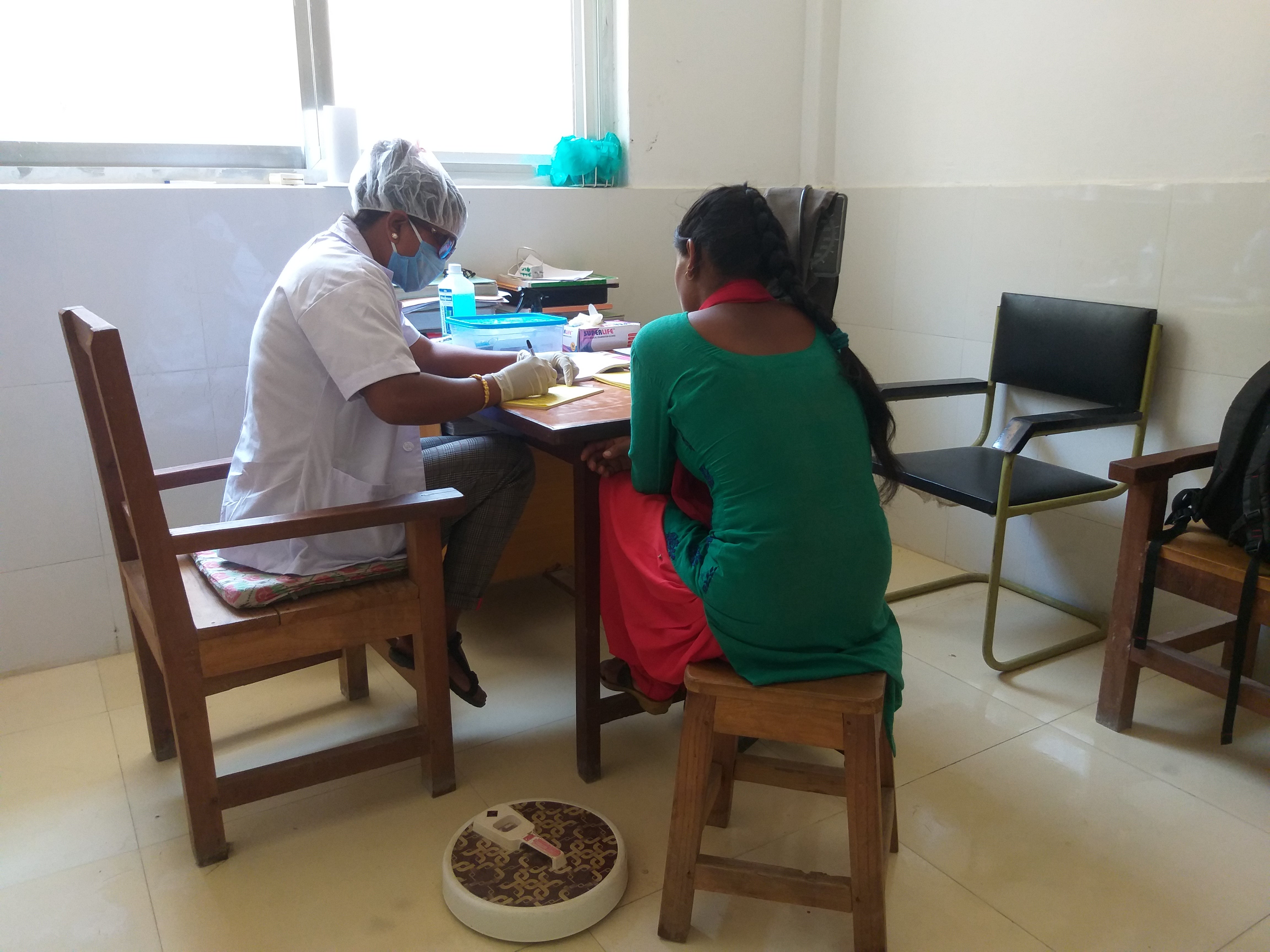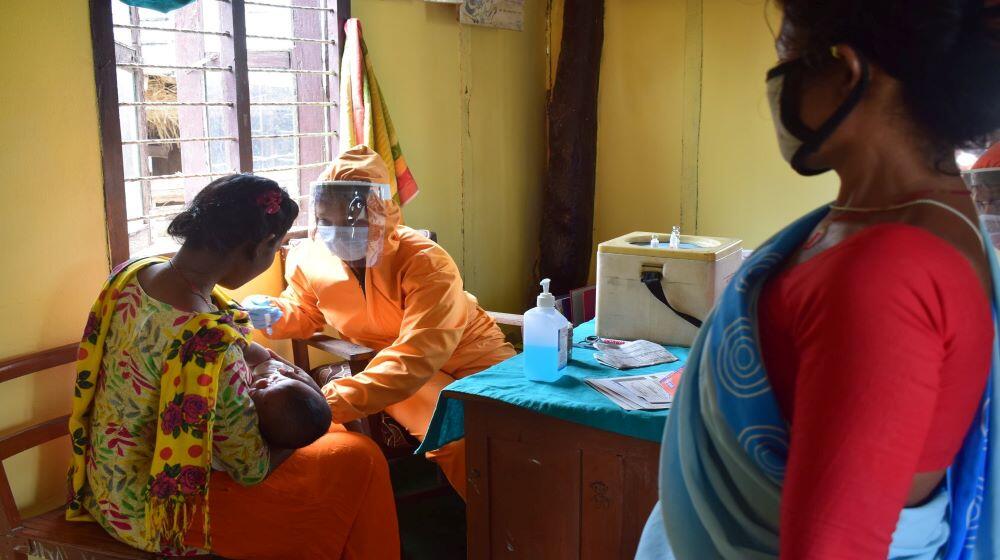GHALETOLE, Siraha – The COVID-19 pandemic has brought misfortune to millions around the world. And for many women, like 21-year-old Rama Mahato*, of Ghaletole in Siraha, Province 2, it came with a shadow pandemic: an increased incidence of gender-based violence.
Ms. Mahato was already facing abuse before the pandemic broke out. Her in-laws had never been satisfied with the dowry – cash and furniture – her parents had paid to them before her marriage. They taunted her and even physically abused her. But it was not until she became pregnant that she told her husband she’d had enough. “The situation with our family is not good,” she said.
Her husband, a day labourer and the only breadwinner for their household, agreed they needed to make serious changes. If he was able to make more money, they thought, his parents might stop harassing Ms. Mahato about the dowry. Together, they decided he would take a loan to travel to Dubai to find a higher-paying job.
The timing was inauspicious. He arrived in the United Arab Emirates just as the pandemic took hold, freezing many jobs. He spent nine months unable to find work and unable to return to Nepal. Meanwhile, Ms. Mahato gave birth to their son. The lockdown in Nepal meant she could not find work herself, forcing the family to seek donations from local organizations and neighbours. Sometimes, Ms. Mahato would go door-to-door looking for work.
Then she found the Women’s Rehabilitation Centre, also known as WOREC.
Reaching pandemic-affected women and girls

WOREC is a feminist non-governmental organization that works closely with grassroots groups and networks. Its work in the Terai region of Nepal, an area hard-hit by the pandemic, has proved critical, as the area confronted local transmission of COVID-19, major economic impacts from the lockdown and border closures, as well as increased reports of gender-based violence and mental health concerns.
UNFPA and the Global Fund for Women together provided support and funding to eight local groups, including WOREC, enabling those groups to design locally appropriate interventions to support women and girls in the community. Many of those organizations provided personal protective equipment, food, health services, as well as mental health and psychosocial support.
WOREC used these resources to provide essential goods, including clothes and nutritious food, to some 20 pregnant and breastfeeding women in the community. WOREC also operated three hotlines to provide telephone-based counselling, and provided in-person counselling services in 15 districts of Terai. Information on health, the rights of women and girls facing gender-based violence, and COVID-19 prevention and mitigation, was also disseminated in three local languages via radio, public service announcements and social media.
"During COVID-19, the services offered on the ground by our partners, with support from UNFPA and other development agencies, to aid survivors of gender-based violence are life-saving and more crucial than ever," said UNFPA’s Representative in Nepal Lubna Baqi.
Ongoing support needed
"When I got to know about the relief program in my municipality, I rushed to the place where distribution was going on,” Ms. Mahato said. She was able to receive psychosocial counselling from specialists at WOREC. She also received food supplies, a dignity kit containing menstrual pads, soap, detergent and face masks.
“As soon as I reached home, I went straight to the kitchen to cook the rice.... I was happy to be able to feed my son full stomach after a long time," she said.
Tragically, her husband died in an auto accident shortly after he returned to Nepal. His parents evicted Ms. Mahato and her son soon after.
Today they are staying in the home of her parents, who are day labourers also struggling to make ends meet. Ms. Mahato works in the vegetable patches of nearby farms to help the family get by. WOREC continues to provide regular services to her and her family.
But much more must be done to ensure women-led local and grassroots organizations are well supported. As actors on the ground, they have a first-hand view of the needs, and are able to provide agile, creative and locally appropriate solutions.
“The support provided by UNFPA and the Global Fund for Women to WOREC has been crucial. But to continue the work like this with multiple benefits on the ground, local organizations need more support from international organizations," said Laxmi Aryal, a senior programme and training coordinator for WOREC. "Underfunding local organizations is depriving gender-based violence survivors and those at risk of their right to receive the support and services they need.”
Ms. Baqi echoed those sentiments. “Key to success is ensuring strong collaboration among the gender-based violence response partners so that survivors of gender-based violence have real options.”
* Name changed for privacy and protection


